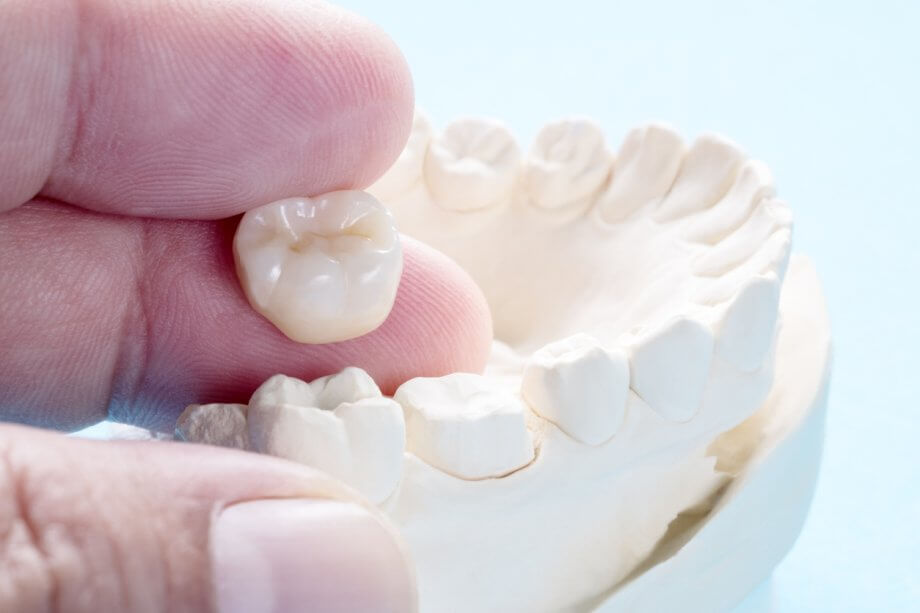You've probably heard of crowns before, but unless you've had one in the past, you might not know exactly what they are and how they differ from other restorative dental procedures like bridges or implants. This quick primer goes over all the basics so you know what to expect during your appointment with us.
What is a dental crown?
A crown is used when a tooth's root does not need replacement. This differs from a bridge, where an entire missing tooth is replaced above the gumline without a root replacement, and an implant where a missing tooth is replaced both above and below the gumline. Crowns are caps that are cemented onto a tooth. They're shaped like natural teeth in order to preserve function; some types of crowns also preserve appearance.
When are crowns needed?
There are many circumstances in which we use dental crowns. Some of the most common include:
- When a cavity has progressed to the point where a filling is not an option
- As a support, or abutment, for a dental bridge
- To protect a weak, cracked, or damaged tooth
- As a cap for a tooth that has had a root canal
- To cover teeth that are discolored or misshapen
You'll typically need two visits to receive a dental crown. During the first, we'll take impressions and imaging, then prepare the tooth in question. After your crown has been fabricated by our in-house dental laboratory, we will cement it in place permanently.
What are the different types of dental crowns?
All crowns restore function to your damaged tooth. Some crowns also restore appearance by matching your natural tooth color. The location of your tooth and your budget play a role in determining which type of crown is right for you. Your options are:
Base Metal Alloys - Resistant to corrosion and breakage, these crowns are a good option to replace molars because of their strength.
Gold Alloys - A gold alloy consists of gold, copper, and other metals. This bonds well to teeth and is unlikely to fracture.
Porcelain Fused to Metal - By fusing a porcelain crown to metal, it has the strength and durability you want from a crown without sacrificing appearance. This makes these crowns one of our go-to solutions.
All Ceramic or Porcelain - When a crown is needed for a front tooth, this is a popular option for its ability to match your natural teeth. These crowns are not as strong as the other three options.
Resin - Resin dental crowns are an affordable alternative to traditional crowns, but they are also more likely to fracture and have a shorter lifespan.
Which type of crown is right for me?
Every mouth is different, so the best way to make a decision about a material for your crown is for us to see you in person. We'll take a look in your mouth and discuss your treatment goals and insurance coverage.
To schedule an appointment, contact us at 845-364-9400 for our Pomona, NY location or 718-376-1666 for our location in Brooklyn. We look forward to seeing you!

